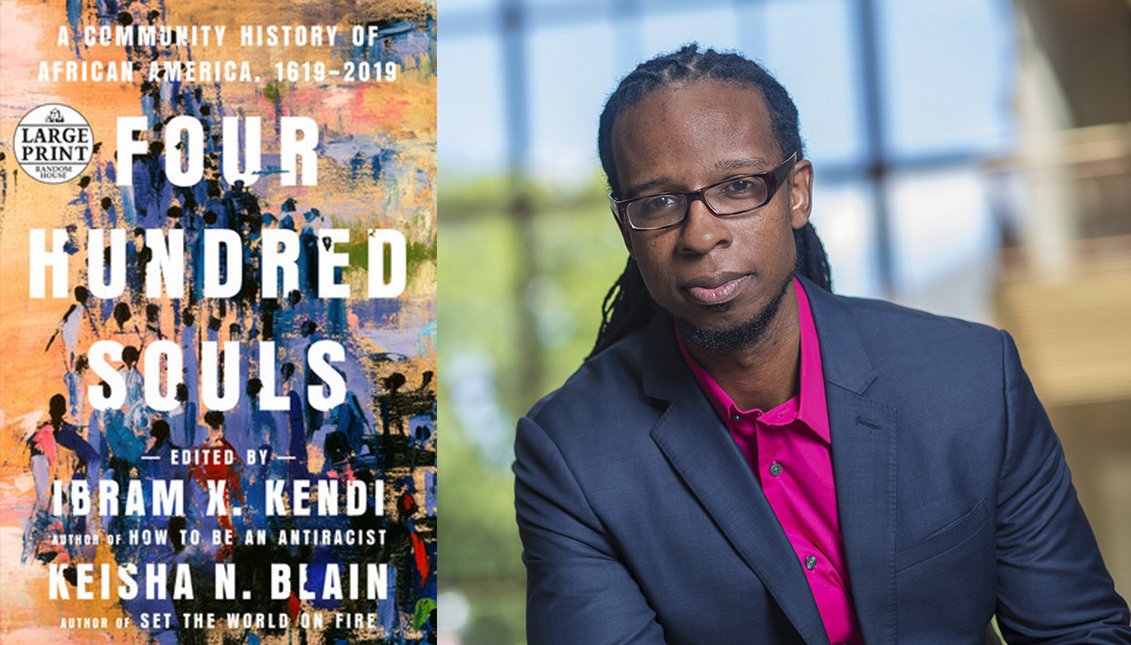
A chorus of writers and 400 chords to sing of African-American struggle
Ibram X. Kendi gathers the voices of dozens of writers to tell four centuries of history during Black History Month.
"What Blacks have been able to accomplish in this country, despite what they've faced, really speaks to the speech of the soul of humanity," said Ibram X. Kendi.
The director of the Boston University Center for Antiracist Research and author of the bestseller How to Be an Antiracist, which became a manifesto for BLM mobilizations last year, spoke on the occasion of a new publication on Feb. 2. It is a book set to be a benchmark for the study of African-American history for generations to come.
Four Hundred Souls: A Community History of African America, 1619-2019 is not a run-of-the-mill work about the four centuries of Black struggle in the country, but a veritable patchwork of essays, fiction, articles, vignettes and poems by 90 African-American authors that both Kendi and historian Keisha N. Blain (Set the World on Fire) have orchestrated as a sort of "choir," singing "the chords" of the community in five-year plots all the way up to 400 years.
"Collectively, this choir sings the chords of survival, of struggle, of success, of death, of life, of joy, of racism, of anti-racism, of creation, of destruction — America's clearest chords, year after year, of freedom, justice and democracy for all," Kendi wrote. "Four Hundred Chords."
The goal of the book was not only to commemorate the 400th anniversary of Black American history, but to unite authors in the community so they themselves, Kendi said, would make history and in a century or two, people would reflect on these 400 years and know what people of color thought about their own history.
RELATED CONTENT
"It's always a challenge for a single author to write the history of a community, because that community is so amazingly diverse and it's almost impossible for that writer to encompass the breadth of that diversity. But there's another way to do it, which is to bring that breadth of diversity by writing a book together," the writer added about Four Hundred Souls during a talk at the Smithsonian with which he kicked off a tour of presentations that can be found HERE.
The choice of authors and the span of years they write about, starting with 1619 — when the first African slaves arrived in the Virginia colony — is not random. Kendi and Blain wanted it to be a really diverse book and for each author to have a special tie to the time period he or she was going to write about.
"I hope people recognize that the death they may be reading about in the early 1820s is still upon us."
"For example, it was a no-brainer to ask Sherrilyn Ifill to write about Brown v. Board of Education because of her pivotal role in the NAACP Legal Defense Fund. It was a no-brainer and, of course, she agreed. It was a no-brainer for us to ask Barbara Smith to write about the Combahee River Collective, as one of the members of that group. So for certain things it was a no-brainer. We saw and they saw. In other cases, it was about finding a good match," said Kendi, who in turn tried to get everyone involved to connect the past to the present, which is one of the most powerful aspects of the book.
"That [in] each five-year period of this 400-year march, you can see the way that history is living or that history, in some way, is impacting right now. Or the way that historical change led to our current time, or what we can learn from those five years about our current time," he said.
Both Kendi and Blain hope that the book, which could not have come at a more opportune time in the heat of the struggles for racial justice from 2020, will fuel the growing desire to learn about the history of the Black community in America. Especially now, when multiracial democracy seems much more than a promise and in the context of a pandemic in which Black and Brown lives are in much more vulnerable positions.
"I hope people recognize that the death they may be reading about in the early 1820s is still upon us. That the domestic terror they read about in the 1870s and 1880s is still upon us. That the voter suppression policies they will be reading about in the early 1900s are still upon us. (...) But I also hope it will rejuvenate them and renew their fight to rid this country of it," he concluded.












LEAVE A COMMENT: